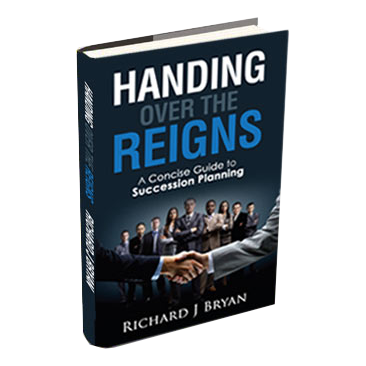If you’ve been reading the news at all in recent years, you may have noticed a mounting “body count” of all the industries and institutions Millennials have, according to clickbait journalism, allegedly “killed” with their complex and mercurial ways. Shouty headlines seem to announce a new “death” every day, from department stores and movie theaters to cars, churches, casinos and cruises. RIP, American Dream…and thanks for nothing, Millennials!
But should we be so quick to throw away an entire generation of people, based on their uncanny ability to shift the global perspective? Did we not learn anything from the 1960s? As a succession planning speaker, I’m beginning to count more and more people of this age group as new customers, along with the bulk of my clientele—the people who employ them. And what I’ve noticed about them isn’t their murderous ways, but something quite a bit more life affirming. Here are four ways Millennials can make your company stronger.
1. They value personal growth. In many ways, the rise of the Millennial workforce marks the death of “lifer” mentality—and this is a GREAT thing. In my travels on the succession planning speaker circuit, one of my clients’ biggest complaints is their need to “cut the fat” from companies with a surplus of long-term “lifer” employees who are no longer engaged in the business or interested in their own careers.
By contrast, 65% of Millennials say that personal development is an important criterion in job selection, and more than half say they’re attracted to companies and roles that offer clear opportunities for career progression over time—while 25% see training and development as the biggest benefit an employer can provide. Employees who are deeply invested in their own growth can ONLY be good for the growth of your company.
2. They’re better at tech than you. No, really…they are. As a solid Gen-Xer, I’m not exactly a stranger to technology—but I’m still part of a generation who, by and large, learned typing on a manual typewriter. Millennials were the first generation to have required computer classes, and the first generation to grow up with social media.
While we may have added digital savvy to our respective skill sets, over time—it’s part of Millennials’ DNA. This may not be great for their social skills, but it can be extremely beneficial for your company to have this knowledge base redefine your workforce.
3. They’re surprisingly ethical. Naysayers love dismissing Millennials as “narcissistic” and “selfish,” citing their obsession with selfies and refusal to settle for entry-level jobs. But a recent study, “What Millennials Expect from Your Brand,” found that this group is actually holding companies to much higher ethical standards than previous generations.
Data released by technology company, Morning Consult, reveals Millennials’ most important values are as follows: honesty (77%), reliability (74%), helping family (74%), compassion (72%) and commitment (72%). These are reflected in the companies Millennials support—as well as in the companies at which they eventually work.
So what will a Millennial-led shift in business ethics really look like? The jury’s still out on that. But I have noticed some encouraging trends among my 21-year-old son and his friends from university. As a group, they’re quite concerned about their environmental impact, and are looking to work for companies who model best practices for supply chain and a variety of other sustainability policies—from reducing plastics and animal protein on a micro level, to choosing to partner with like-minded vendors on a macro level. As leaders, we may be looking to them to raise the bar for both belief and behavior—and to help attract the next generation of engaged employees.
4. They’ll raise the bar for commitment. My mentor, Frank, believed very strongly in hiring for attitude as well as ability. One day, years ago, he and I received word that an employee in our parts department was making it known around the workplace that he had a job offer from a local competitor—an offer he was planning to accept.
Frank requested a meeting with the person in question, and asked him to confirm or deny the rumors. When he confirmed that he had, in fact, been talking about his job offer—Frank asked for his resignation. “I don’t want anyone here who is not fully committed to the organization,” Frank said. “Please return to your department and say goodbye to your colleagues. Thank you for your service, and good luck in the future.”
In truth, the events of that day sent a shock wave through the parts department. But the message to ALL staff was clear—we only want you here if you truly believe in what we’re trying to achieve. Like myself and Frank that day, we’ve all heard rumors about Millennials. But when the chips are down, data suggests that this generation is poised to make an incredibly positive impact on global business culture. If we can set our preconceived notions aside and commit to investing in their re-imagined workplace, it’s possible we’ll be rewarded with a workforce that’s unconstrained by our own limits. Let’s find out, shall we?
Related Topics:
Tips to Fight Busy-ness in your Business
How Disagreement Can Help Your Team Thrive
5 Leadership Resolutions for 2019 + How to Make them a Reality


